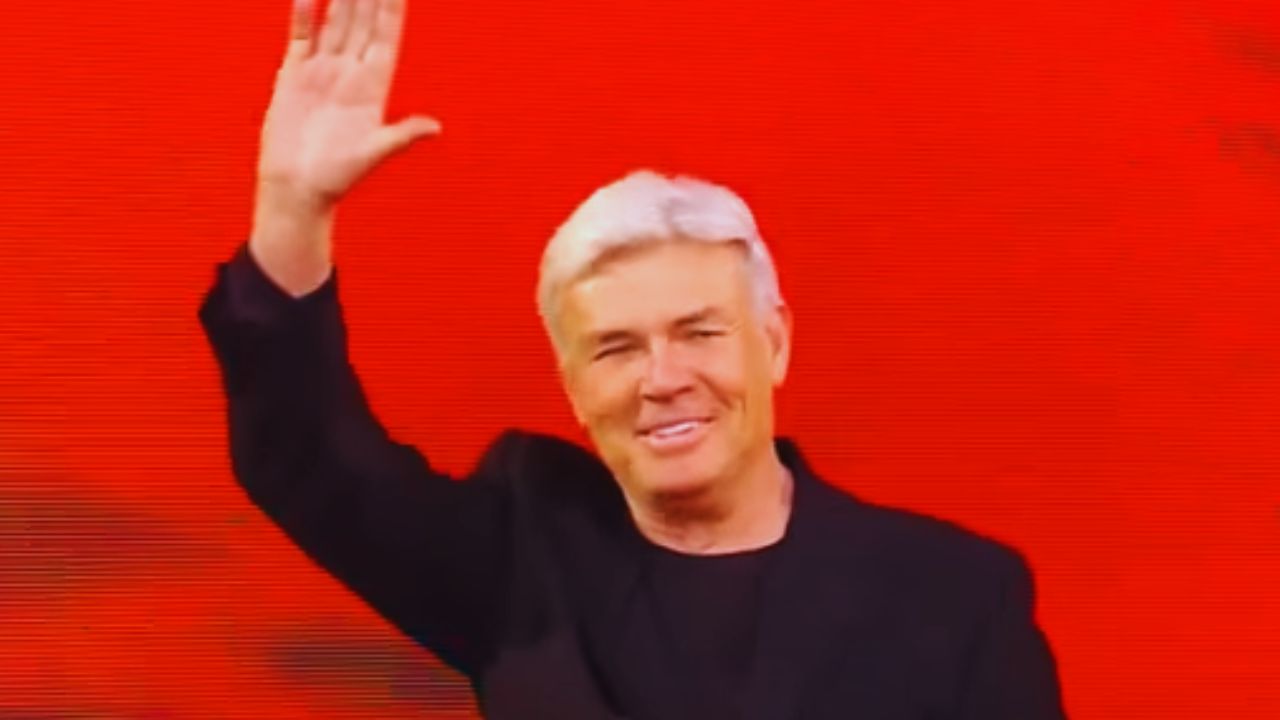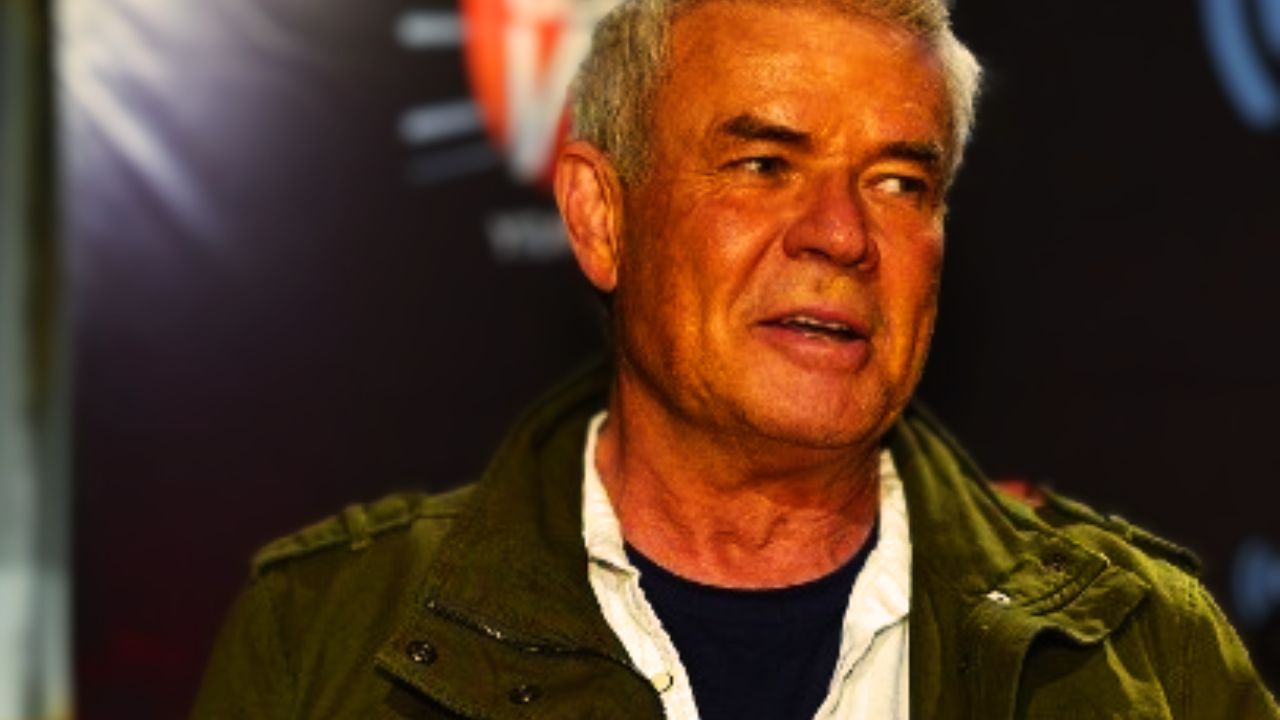The shocking revelation made by Eric Bischoff: Kurt Angle’s career at WCW would have been doomed.
WWE Hall of Famer and former WCW Executive Producer Eric Bischoff recently made news with a startling admission: he believes that one of wrestling’s most revered individuals, Kurt Angle, might not have become legendary if he had joined WCW during the contentious Monday Night Wars. Bischoff, a man who had a significant role in forming WCW at its height, was forthright in his assessment of the potential consequences of that choice for Angle’s career.
The Monday Night Wars: A Ring of Resistance vs. Domination
WWE (formerly WWF) and WCW were engaged in a bloody rivalry for supremacy in the professional wrestling industry in the late 1990s. Known as the Monday Night Wars, this period saw businesses competing fiercely to outperform one another, frequently by bringing in elite personnel. While leading WCW, Bischoff was able to entice a number of well-known figures, like as Hulk Hogan and the nWo faction, who came to represent WCW’s popularity. But even as WCW signed these high-profile talent, WWE signed 1996 Olympic gold medallist Kurt Angle in a calculated maneuver.
Kurt Angle in WCW: A Possible Dream
On his “83 Weeks” podcast, Bischoff explored an intriguing “what if” scenario, pondering how Angle’s career trajectory might have changed had he joined WCW instead of WWE. His assessment was far from optimistic. “In 1999 or 2000, I think Kurt Angle would have come and gone, and nobody would be talking about him to this day,” Bischoff stated with conviction. “People would have forgotten about him. That’s not a good time to emerge as a star in WCW. It was possibly one of the worst times to emerge as a star because nobody would notice or care at that point.”
Bischoff’s dismal appraisal presents a dismal image of WCW in the late 1990s. By then, WCW was a mess inside, beset by poor leadership, problems with creativity, and the dreaded “fingerpoke of doom,” which a lot of fans and observers believe marked a turning point in the company’s demise. It was not a place to develop young talent, and Bischoff is certain that Angle would have been absorbed by the dysfunction even if he was incredibly talented.
WCW’s Unpredictable Fall: A Death Sentence for Up-and-Coming Talents
Bischoff’s remarks highlight just how bad things were at WCW in 1999 and 2000. The business, which had previously been a strong rival of WWE, was rapidly failing. A few of the problems that led to its demise were dwindling viewership, creative stagnation, and internal politics. Bischoff says that these elements would have made it extremely difficult for Angle, a developing star, to get recognition, much less become the legend he is today.
“Kurt Angle is an incredible talent, but WCW at that time was not a place where new talent could thrive,” Bischoff explained. “We were in survival mode, and the focus was on established stars. Someone like Kurt would have been overlooked, and his potential wasted.”
Bischoff’s observations serve as a sobering reminder of how important circumstances and timing can be in determining a wrestler’s professional trajectory. Although Angle went on to win numerous WWE world championships and solidify his status as one of the best of all time, Bischoff is certain that Angle’s tale would have been dramatically different had WCW remained a chaotic organization.
Macho Man: A WCW Freebie

When Bischoff talked about the odd bargains and lost possibilities of Wrestlemania, he didn’t stop with Kurt Angle. Additionally, he disclosed that WCW received WWE Hall of Famer Randy Savage as a “free” acquisition. Larger-than-life persona Savage, who was identified with the heyday of professional wrestling, got a seven-figure contract with WCW. But Savage’s Slim Jim marketing deal—which he brought with him to WCW—brought the organization $750,000 a year, according to Bischoff. Savage was essentially a free talent in Bischoff’s view because his sponsorship arrangement covered the whole cost of his contract.
“Randy was a huge star, and we got him for basically nothing,” Bischoff recounted. “His Slim Jim deal covered his entire salary, so it was like we were getting a legend for free. It was one of the best deals we ever made.”
A Legacy Shaped by Decisions
Bischoff’s disclosures provide an engrossing look into the competitive world of professional wrestling at one of its most turbulent times. The decisions taken by businesses and wrestlers alike influenced not only the course of individual careers but also the industry as a whole. As Bischoff implies, Kurt Angle’s decision to sign with WWE rather than WCW may have been the pivotal moment in his rise to wrestling immortality. In the meantime, the complicated and frequently surprising nature of the business is reflected in WCW’s ability to close deals like Savage’s Slim Jim contract.
Bischoff’s observations serve as a helpful reminder that timing and opportunity are just as important in the professional wrestling industry as skill when fans speculate about these “what if” scenarios.
H/t to ITRWrestling.com




